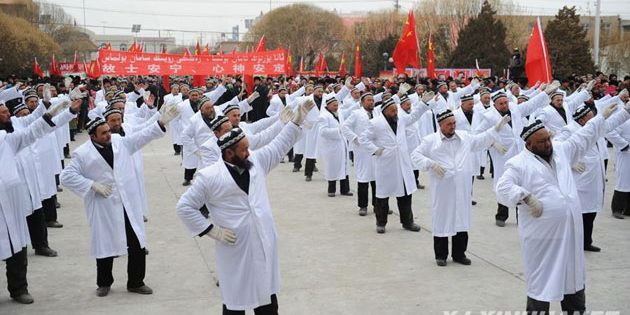More than 70 religious leaders from Northwest China’s Xinjiang (East Turkistan) Uyghur Autonomous Region attended a four-month training in Beijing, vowing to introduce the experience of sinicizing Islam to the region troubled by religious extremists.
The session included courses and site visits to cities like Quanzhou in East China’s Fujian Province and Qufu in East China’s Shandong Province, China News Service (CNS) reported.
Fujian is among the first regions in China to introduce Islam, while Qufu is a city known as the birthplace of Confucian culture.
By interacting with Muslims from other regions, religious staff in Xinjiang (East Turkistan) could gain a better understanding of the religion, Turgunjan Tursun, a professor at Zhejiang Normal University, told the Global Times on Wednesday.
At a symposium held at the Central Institute of Socialism on Tuesday, Ma Jianzhong, an Imam from Ili Kazak Autonomous Prefecture, said Xinjiang (East Turkistan) could borrow the experience of sinicizing Islam from eastern cities, CNS reported Tuesday.
Remote areas in Xinjiang (East Turkistan) could also learn from villages in eastern China, such as developing agricultural tourism to boost the local economy, Ma added.
The practice of Islam in China was partly derailed as some religious people failed to combine the doctrines with the local situation, Tursun said.
Religion must follow local political and cultural practices so that it could enjoy long-term development in the region, Tursun added.
Such training has been conducted for several years to maintain social stability in Xinjiang (East Turkistan) and build a moderately prosperous society.
“The interactions could help Xinjiang (East Turkistan)’s Muslims become aware of the government’s policy to sinicize Islam without bias,” Tursun said.
He also noted that “sinicizing Islam meets the demand of the country’s administration for religious affairs, promotes harmonious multicultural coexistence and conforms to self-development needs.”






